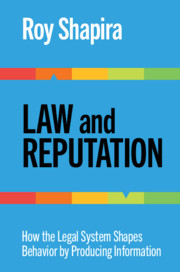actualités internationales Gouvernance judiciarisation de la RSE normes de droit Responsabilité sociale des entreprises
Cartographie du déficit de responsabilité des sociétés transnationales de la Common Law pour les violations des droits de l’homme et des normes du travail à l’étranger
Ivan Tchotourian 14 septembre 2022 Ivan Tchotourian
C’est sous ce titre que le professeur David Cabrelli vient de publier une étude dans la Revue internationale de droit économique 2021/4 p. 151-178.
Résumé :
Malgré l’expansion récente de la portée de la responsabilité dans le droit de la responsabilité civile dans la Common Law, il reste une lacune tangible de responsabilité dans le cas des sociétés transnationales (STN) incorporées en Angleterre et au Pays de Galles qui possèdent ou contrôlent des organisations qui ont commis des violations des normes de travail ou des droits de l’homme lorsqu’elles opèrent à l’étranger. Ce que cette lacune représente, c’est une impasse pratique pour les travailleurs ou les citoyens qui ont été lésés par la conduite de ces entités à l’étranger et qui ont cherché à récupérer les pertes qu’ils ont subies auprès de la STN devant les tribunaux anglais appliquant le droit anglais. Cet article soutient que les doctrines et principes de droit privé applicables en Common Law – dans le cas des contrats, du droit international privé, de la responsabilité délictuelle et du droit des sociétés – sont des éléments constitutifs, plutôt que de simples expressions, de ce déficit de responsabilité. Cela est surprenant si l’on considère les valeurs fondamentales qui animent les lois privées existantes et les règles de responsabilité du fait des produits, qui cherchent soit à empêcher les dommages de se produire en premier lieu, soit à offrir une certaine réparation lorsqu’ils se produisent effectivement. Dans cet article, l’auteur examine la possibilité de modifier les doctrines existantes du droit privé et du droit des sociétés anglais pour parvenir à un résultat où les STN seraient tenues pour responsables lorsque cela est justifié, par exemple en cas de catastrophes ou d’événements survenus à l’étranger qui causent des pertes humaines ou des blessures graves et pour lesquels une STN porte une partie ou la totalité de la responsabilité.
Pour accéder à l’article : ici
À la prochaine…
Nouvelles diverses Responsabilité sociale des entreprises
Réputation et droit : un ouvrage
Ivan Tchotourian 12 novembre 2020 Ivan Tchotourian
Bel ouvrage qui intéressera nos lectrices et lecteurs du blogue : « Law and reputation » (de Roy Shapira). Ce livre vient enrichir la réflexion sur le mécanisme de réputation qui est particulièrement important en matière de RSE.
Pour un résumé de cet ouvrage : ici
Résumé :
The book starts with the basic questions of what reputation is and why it is noisy. Not all bad news is created equal. Some companies and businessmen emerge from failures unscathed while others go bankrupt. To better understand why similar behaviors lead to different reputational outcomes, I break the process of reputational sanctioning into its different components: revelation, diffusion, certification, and attribution of information. Damning information has to be widely diffused so that it reaches a critical mass of stakeholders in order for the reputational sanction to be meaningful. Information that was widely diffused has to be certified as credible for the company’s stakeholders to consider it seriously. And information that was diffused and certified has to first be attributed to deep-seated flaws that are likely to reoccur in the future, in order for the company’s stakeholders to update their beliefs and act on it.
Law enforcement—both private and public—can affect the process of reputational sanctioning along each of the abovementioned stages. Think for example about internal emails exposed during the discovery stage, revealing a systematic cover-up or total lack of checks and balances throughout the corporate hierarchy. Litigation thus affects reputation by uncovering information to which market players were not privy. Litigation also affects reputations without producing new information, simply by changing the framing, credibility, and saliency of existing pieces of information. In particular, litigation shapes the scope and tenor of media coverage. To illustrate, I analyze the content analysis of the investigative projects that won the Pulitzer Prize over the last twenty years, finding that “legal sources” (court documents, regulatory investigation reports, and so on) are more often than note the key source for such media investigations (a separate article elaborates).
The bulk of the book is dedicated to specific applications of the law-and-reputation framework. Consider the following three issues, all frequently debated in this blog.
The first example comes from corporate fiduciary duty litigation. Directors may not fear the highly unlikely prospect of paying out of pocket in litigation, but they fear the nonlegal costs that come with litigation, such as having their shenanigans or faulty processes exposed in discovery and called out by an expert Delaware judge. By analyzing corporate law doctrines through their impact on information production, we get a fresh perspective on much-debated features, such as Delaware’s recent expansion of shareholders’ right to inspect the company’s books and records (I wrote elsewhere about the rise of section 220 and how it is reshaping deal negotiations and oversight duties).
A second application concerns the SEC’s enforcement practices, which became the center of national debate in the wake of the 2007-2009 financial crisis. While the existing debate revolves around the amount of money being paid or admissions being collected in SEC settlements, the reputational framework offers an alternative way to measure the effectiveness of SEC enforcement. The real problem with SEC settlements is not that the SEC leaves money on the table, but rather that the SEC leaves information on the table. Both the SEC and big-firm defendants have incentives to settle quickly and for high amounts, in exchange for limiting the public release of damning information. Such information-underproduction dynamics are good for both parties but bad for society at large. The reputational framework helps us identify solutions, like evaluating the proper scope of judicial review of SEC actions.
A third, timely issue that the reputational framework sheds light on is the proliferation of mandatory arbitration clauses that effectively waive class actions. With the blessing of the Supreme Court, mandatory arbitration provisions with class action waivers have become common in contract, consumer, and labor law. Policymakers now consider importing this trend to corporate and securities laws as well. The existing debate centers around consent and compensation: Can shareholders be held to consent to arbitration provisions in the company’s corporate governance documents? Are shareholders better off with arbitration, given that litigation currently offers them very little compensation (with high fees)? Yet the extant debate misses the forest for the trees. Even if shifting from litigation to arbitration may be good for a specific company and its investors, it may prove detrimental to the market overall. We will lose the positive externality (in the form of quality information on corporate behavior) that comes with litigation. A shift to mandatory arbitration may therefore reduce the administrative costs of litigation, but hurt the ability of the market to discipline itself. In other words, mandatory arbitration provisions may reduce the effectiveness of reputational deterrence, and therefore be bad for investors as a group.
My book thus centers around one overarching point: the law shapes behavior not just through imposing sanctions, but also through producing information. In the course of fleshing out this point and examining the interactions between law and reputation, the book contributes to various other debates beyond the ones highlighted here, such as the desirability of heightened pleading standards, or whether to assess director liability individually or collectively.
At a more general level, delving into the interconnections between law and reputation allows us to revisit the age-old policy debate over legal intervention. Two binary camps have been dominating this debate: one advocates “leaving things to the market” while the other calls for “ramping up legal sanctioning.” Yet those who oppose legal intervention fail to recognize the importance of the legal system for the functioning of market discipline. And those who advocate for more legal sanctions fail to recognize the ability of the legal system to shape behavior indirectly, without interfering with business decisions. Sometimes the most effective and realistic way to promote deterrence is not to increase legal sanctions, but to increase the quantity and quality of information production.
À la prochaine…
devoirs des administrateurs Gouvernance mission et composition du conseil d'administration Normes d'encadrement normes de droit parties prenantes Responsabilité sociale des entreprises
Directors’ Duty under UK Law to Promote the Success of the Company during the COVID-19 Pandemic
Ivan Tchotourian 15 mai 2020 Ivan Tchotourian
Le 30 avril 2020, Philip Gavin s’est interrogé sur l’intérêt de l’article 172 du Company Act pour les administrateurs et dirigeants dans le contexte de la COVID-19 : « Directors’ Duty under UK Law to Promote the Success of the Company during the COVID-19 Pandemic » (Oxford Business Law Blog).
Extrait :
A nuance to director’s duties in the United Kingdom is the expansive statutory delineation of s 172, which endows numerous considerations for directors when acting to promote the success of the company for the benefit of members. Given the unique circumstances of the present-day commercial sphere and the more humanitarian demands being put to businesses, having a statutory foundation upon which to base non-traditional business strategies may assist effective decision-making and financial reporting.
The initial three considerations enshrined within s 172 are (a) the likely long term consequences of any decision, (b) the interests of employees and (c) the need to foster business relationships with suppliers, customers and others. These factors are of particular relevance for firms who sought justification for voluntary shutdown of businesses prior to the wider governmental shutdown.
(…)
Where production changes become quasi-humanitarian in tone and companies internalise cost in the interim, directors may seek justification through s 172(1)(d) and (e), these being the impact on the community and the desirability of maintaining high business standards respectively. Accordingly, directors can seek to frame these quasi-humanitarian efforts in long-term reputational terms, thereby engendering prospective communitarian goodwill.
Furthermore, as political pressure mounts, boards may evaluate reputational factors not simply in terms of market reputation, but also in terms of Governmental co-operation. This is particularly so where companies face increased intervention by public authorities through the Civil Contingencies Act. Comparatively, in a recent memorandum the Trump administration has attempted to exert control over the distribution of ventilators by the multinational conglomerate 3M. Cautious of such intervention occurring within their own enterprises, companies may shift business operations to such an extent to signal their compliance and co-operation with public authorities, thereby disincentivising the wholesale overrule of board discretion.
Within jurisdictions with vaguer duties to act bona fide in the best interests of the company (Delaware, Australia, Ireland), directors may still engage in such quasi-humanitarian efforts. Nevertheless, utilising s 172 to steer directorial judgment may assist effective decision-making, and furthermore guide financial reporting, which mandates s 172 director’s statements. Given that the tenor of 2020 reports will be likely dominated by COVID-19, UK directors will benefit from the homogenising structure of s 172 when making such disclosures in the coming months.
À la prochaine…

